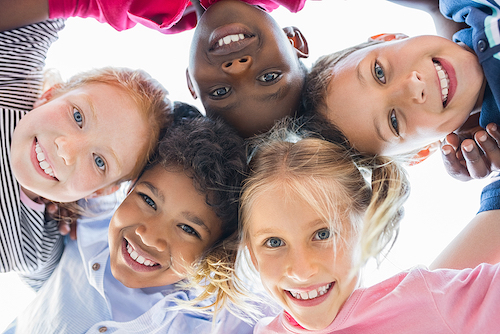January 29, 2025
by Elizabeth Pratt

Did your parents have a favorite child?
Research published in the Psychological Bulletin suggests they may have and the factors contributing to favoritism may surprise you.
[More]
November 30, 2024
by Elizabeth Pratt

One in five parents worry their children don’t have friends or don’t have enough friends.
Results from the University of Michigan Health C.S. Mott Children’s Hospital National Poll on Children’s Health found that 90 percent of parents think their children would like to make new friends.
[More]
February 28, 2024
by Elizabeth Pratt

Teenagers who grow up in large families have poorer mental health than their peers who grew up in a family with fewer siblings.
Researchers from Ohio State University found that in an analysis of children growing up in the US and China, a larger number of siblings had ramifications for the mental health of teenagers.
[More]
December 22, 2023
by Elizabeth Pratt

Parents are feeling the pressure this holiday season.
Data from the C.S. Mott Children’s Hospital National Poll on Children’s Health at University of Michigan Health found one in five parents think their children have unrealistic expectations of the holiday, and one in four parents admit they themselves set overly idealistic expectations for the holidays.
[More]
October 30, 2023
by Elizabeth Pratt

Children who are close to their parents early in life are more likely to be kind, helpful and prosocial when they grow up.
Researchers from the University of Cambridge found that children who had a strong bond with their parents early in their life were more likely to treat others kindly and act with empathy.
[More]
August 31, 2022
by Elizabeth Pratt

Having a partner was more beneficial at avoiding loneliness during the first wave of COVID-19 than having children.
Research published in the European Journal of Ageing found that whilst those without children and those without a partner were more likely to be lonely, those without a partner underwent a notable shift in their loneliness in the early stages of the pandemic.
[More]
October 28, 2021
by Elizabeth Pratt

Children from less wealthy families are likely to have found COVID-19 lockdowns more difficult due to less time spent in nature than their more affluent peers.
Researchers from the University of Cambridge found that children who spent more time in nature during lockdown had less emotional and behavioural problems.
[More]
July 30, 2021
by Elizabeth Pratt

Parents experiencing financial hardship may talk less with their kids.
Recent research from the University of California Berkeley found that economic context may be to blame for the “word gap”, where children from lower income households have heard millions of fewer words than their more affluent peers by kindergarten.
[More]
July 21, 2021
by Elizabeth Pratt

Strong family relationships gives teenagers greater empathy for their friends.
Research published in Child Development found that teenagers who had supportive and secure family relationships had greater empathy for their peers.
[More]
March 30, 2021
by Elizabeth Pratt

Just over a year since the COVID-19 pandemic began in the US, parents are reporting worsening mental health in their teenagers.
The CS Mott Children’s Hospital National Poll on Children’s Health at Michigan Medicine found that almost half of parents have noticed a worsening or new mental health condition in their teenagers since the start of the pandemic. Three in four say the pandemic has negatively impacted the social interactions of their teens.
[More]